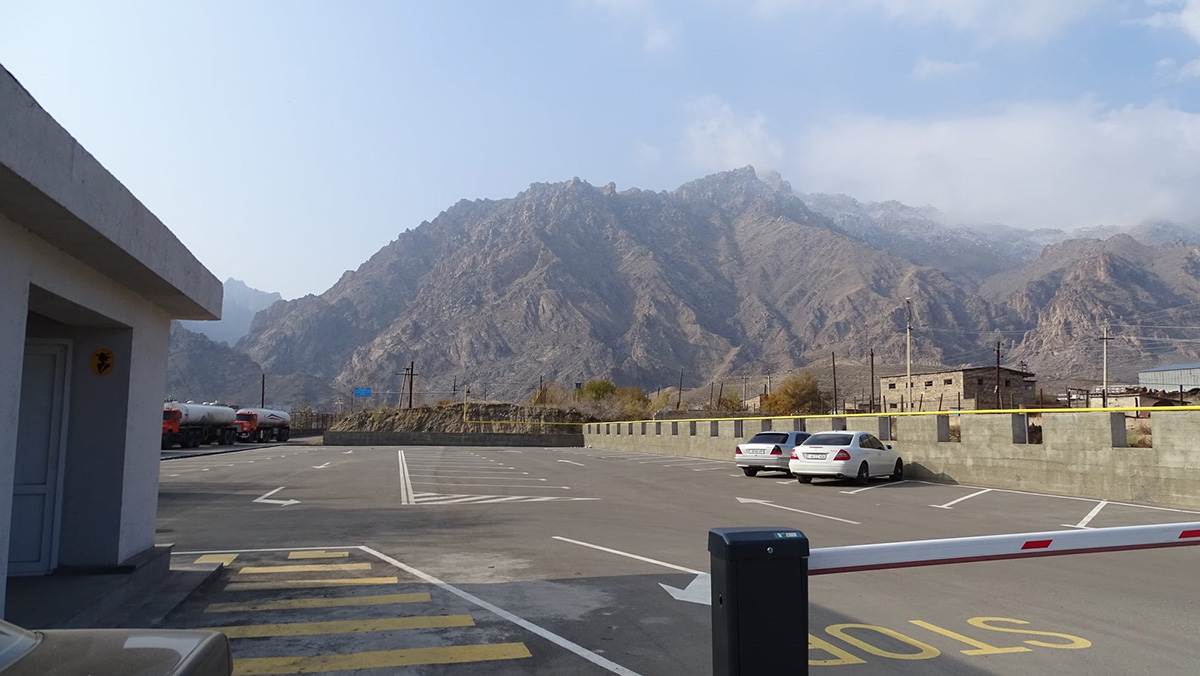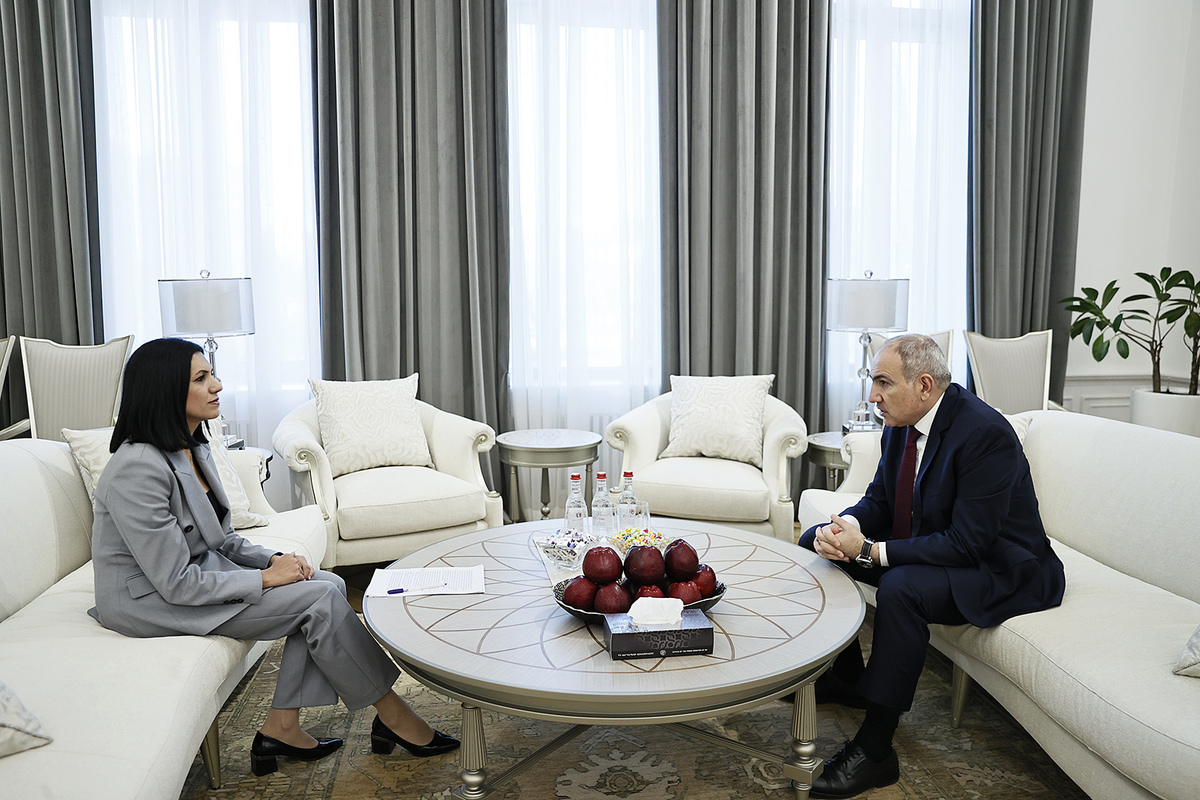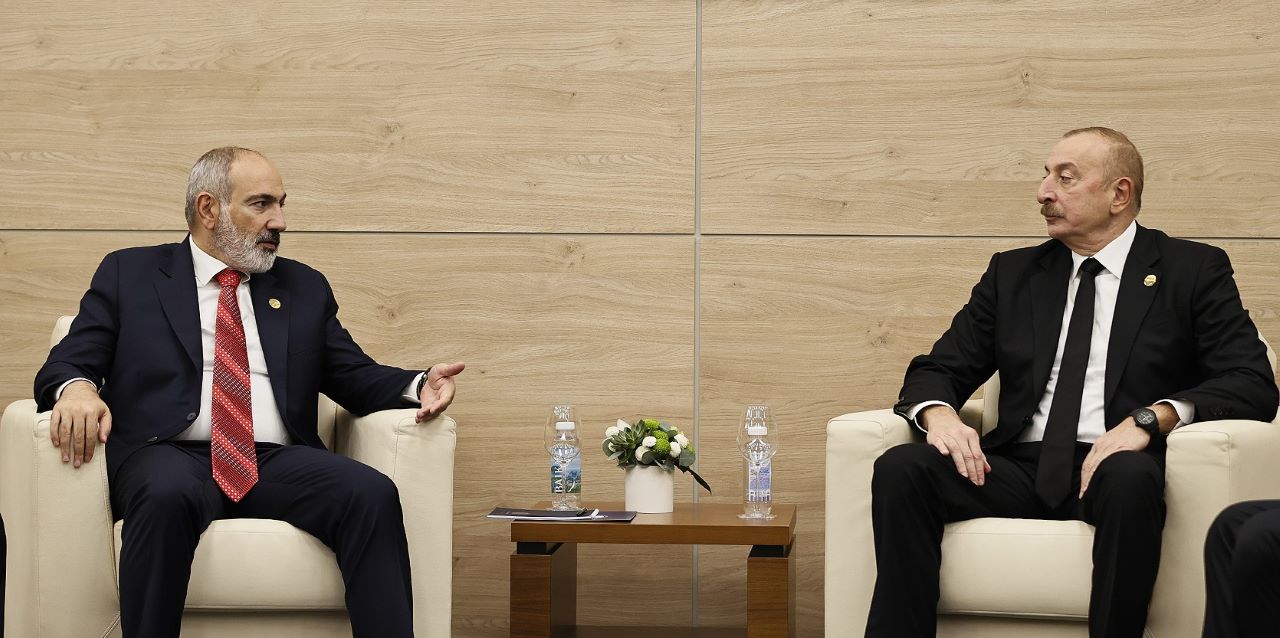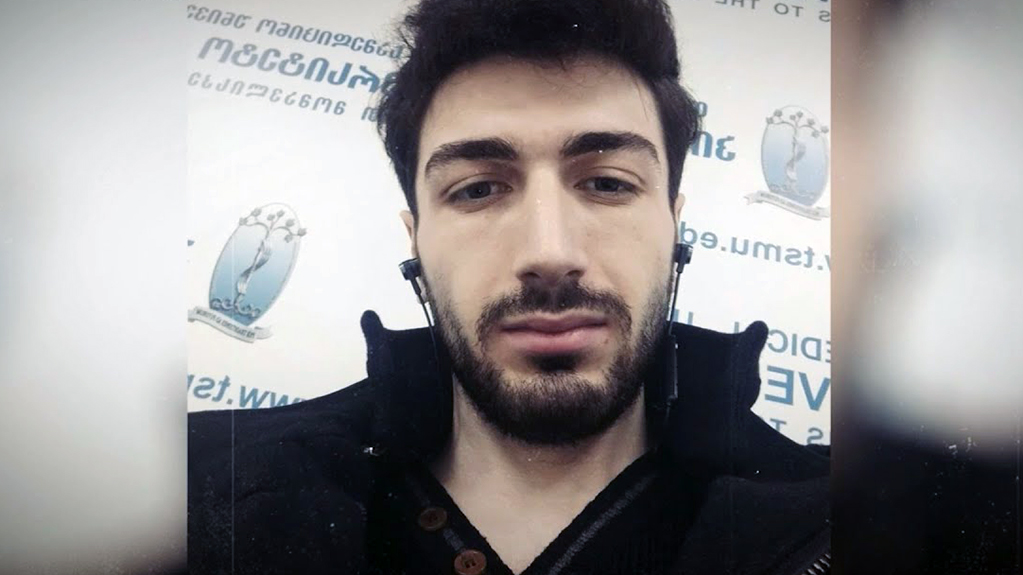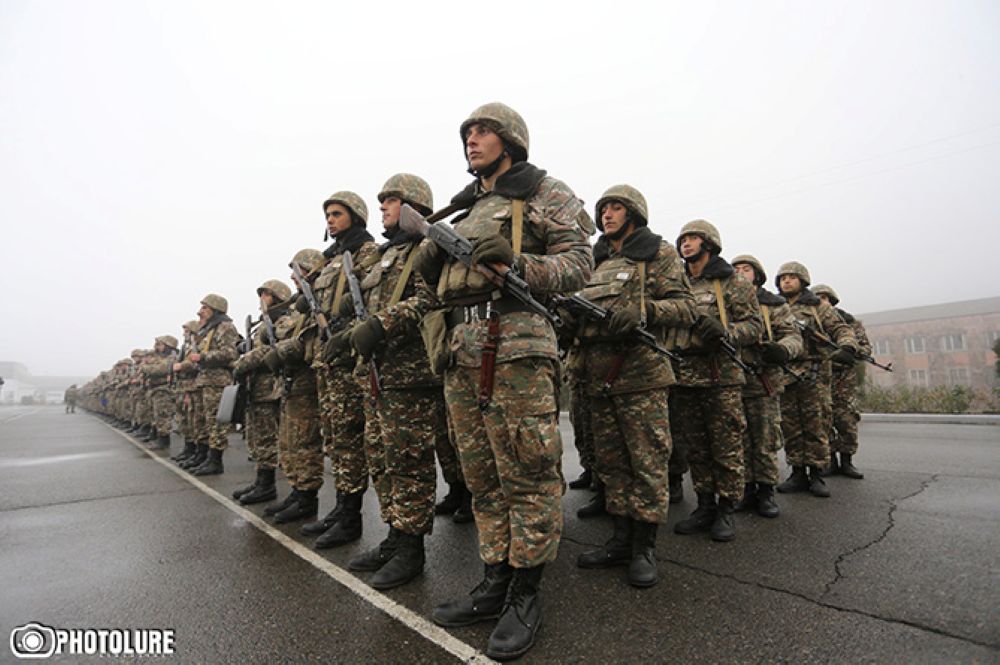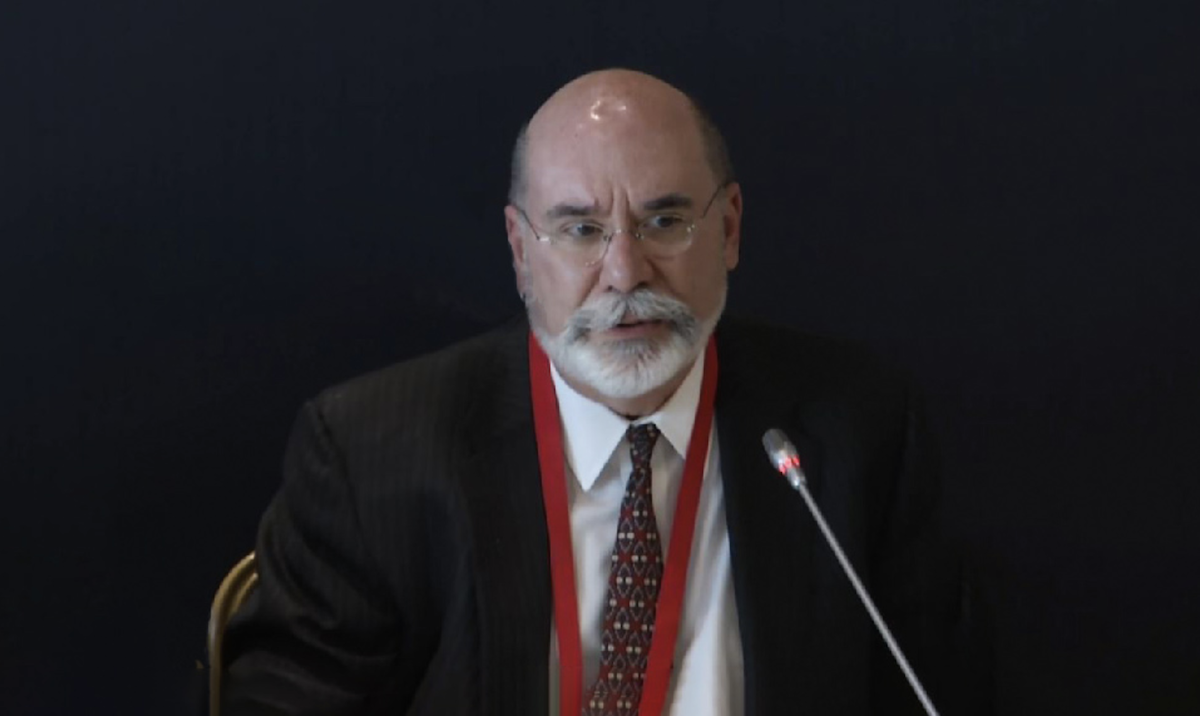Opinion: 'Aliyev makes threats because he cannot neutralise Armenia's potential'
Pashinyan responds to Aliyev’s threats
Azerbaijani President Ilham Aliyev has recently declared that Armenia must not “become a geographic barrier between Turkey and Azerbaijan. “The ‘Zangezur Corridor’ must be opened and will be opened,” he stated. Ilham Aliyev also raised concerns over Armenia’s arms acquisitions and issued a new demand: all contracts must be cancelled, and any purchased weapons returned to their suppliers.
Armenian Prime Minister Nikol Pashinyan quickly responded in an interview, presenting the Crossroads of Peace project as a proposal to unblock regional communications. He emphasised that this is the only initiative on Armenia’s agenda, reaffirming Yerevan’s rejection of Azerbaijan’s demand for the “Zangezur Corridor.” Pashinyan reiterated that Armenia is ready to unblock all communications, but the term “corridor” implies a loss of sovereign control over its territory—something the Armenian government categorically opposes.
On the issue of arms procurement, Pashinyan firmly stated—once again—that “no one can challenge Armenia’s right to maintain a capable defence force.”
“Aliyev’s latest series of arrogant statements and threats—such as his dismissal of a peace treaty and his labelling of Armenia as a fascist state—clearly indicate he is preparing for a new political phase,” political analyst Robert Gevondyan told JAMnews. “This phase is likely to begin in about 10 days, when Trump takes office in the US. Armenia is also preparing for this, and it clearly worries Aliyev.”
According to Gevondyan, Baku’s aggressive rhetoric is aimed at stifling Armenia’s development. He noted that Aliyev is increasingly frustrated by his inability to “neutralise Armenia’s potential.” Gevondyan further revealed that the US and Armenia are expected to sign a strategic partnership agreement next week, which will deepen cooperation in economics, security, and other areas. He concluded that Aliyev’s concerns extend beyond arms supplies to Armenia, as the broader geopolitical developments also appear to unsettle him.
- Opinion: ‘EU expects assurances from Armenia that Georgia failed to provide’
- ‘Trump’s rejection of isolationism could weaken Russia’s influence’- opinion from Yerevan
- Armenia in 2024: Choosing between Europe and Russia, skepticism, and fight for future
Aliyev: “Interpret it however you like“
“I hope that all our conditions for the peace treaty will be accepted because there is nothing extraordinary about them. The dissolution of the Minsk Group and constitutional changes—without these, a peace treaty is impossible. If Armenia does not need a peace treaty, then we do not need it either. We can live and carry out our policies without signing it.”
“Armenia is a source of threat to the region. An independent Armenian state is essentially a fascist state. For nearly 30 years, this country was ruled by proponents of fascist ideology, shaping it in their image. We are neighbours with such a fascist state, and the threat of fascism persists. That is why fascism must be destroyed. Either Armenia’s leadership will destroy it, or we will. There is no other way.”
“The Soros era in America has come to an end. The Biden administration essentially operated in the Soros style. Armenia’s leadership must take this into account. Azerbaijan is not a source of danger to them. We want peace and cooperation in the South Caucasus. We want them not to obstruct us. We want them not to act as a geographic barrier between Turkey and Azerbaijan. The Zangezur Corridor must and will be opened. The sooner they understand this, the better.”
“France and other countries supplying arms to Armenia must cancel and annul these contracts. Weapons already delivered to Armenia must be returned. This is our condition. Now, interpret this however you wish. I mean what I say, and they, along with those backing them, know that when we say something, we take it very seriously.”
Pashinynan: “Baku is trying to legitimise escalation”
“Aggressive statements are being made in the hope that Yerevan will respond aggressively. This would allow Baku to issue even more aggressive statements, accompanied by spreading false information about ceasefire violations by the Armenian army to ‘justify’ new escalation in the region. We will not follow this path, we will remain committed to the strategy of peace and continue pursuing the peace agenda.”
“The strategy of peace involves acknowledging how we are perceived in Azerbaijan [referring to the ‘fascist state’ comment], while they acknowledge how they are perceived in Armenia. Some provisions in the draft peace agreement aim to close the chapter on these perceptions. Others provide an opportunity to address all mutual negative perceptions within a bilateral agenda and work towards resolving them.”
“Armenia has developed the Crossroads of Peace project and is preparing to implement it. The ‘Crossroads of Peace’ envisions unblocking all regional transport communications, including Azerbaijan-Azerbaijan routes through Armenian territory and Armenia-Armenia routes through Azerbaijani territory. We have made a very specific proposal to Azerbaijan regarding the opening of the Yeraskh-Sadarak-Ordubad-Meghri-Zangilan railway. This is more than a proposal; it is a concrete solution to specific issues. We await a positive response from Azerbaijan, after which the agreement will be formalized, and we will begin constructing our sections of the railway.”
“As for concerns about armaments, we are also concerned about Azerbaijan’s militarization. We have listened to their concerns. That is precisely why we proposed establishing a mechanism for mutual arms control with Azerbaijan, and we are awaiting their response.”
Political analyst Robert Gevondyan
Political analyst Robert Gevondyan believes that Aliyev’s recent remarks were “aimed not at Armenia, but at the United States and the international community.” He suggests that the Azerbaijani president is more concerned about the strengthening of Armenian-American relations than Yerevan’s acquisition of weapons. Gevondyan is convinced that a strategic partnership agreement between the United States and Armenia will be signed next week:
“And this agreement will be signed not between the Biden administration and Armenia, but between the Trump administration and Armenia—even though it will be finalized before Trump’s inauguration. In recent months, the Biden administration and Trump’s team have been working in coordination on foreign policy matters.”
He explains that U.S.-Armenia strategic cooperation will not resemble the strategic alliance between Armenia and Russia that existed before 2020 and still formally remains on paper. According to him, relations with the U.S. will reach a new level:
“This means Armenia can have greater expectations from the U.S., particularly in the areas of economy and security, but also in other fields. This is precisely what worries certain regional players.”
The analyst further stated that Aliyev’s aggressive rhetoric is designed to hinder Armenia’s progress and development:
“Aliyev sees that, despite his prolonged efforts to weaken Armenia and neutralize its potential—for example, by securing infrastructure projects but ensuring Armenia cannot benefit from them—nothing is working. This tactic has failed. At Russia’s prompting, Azerbaijan keeps raising the issue of the ‘corridor,’ but even this matter has not been resolved in the way Russia desires and Azerbaijan supports. All of this has led to an escalation in Azerbaijan’s rhetoric.”
As for claims that Armenia is a “fascist country,” Robert Gevondyan believes there are numerous examples that refute this and instead shift the accusations toward Azerbaijan:
“This list includes ethnic cleansing in Nagorno-Karabakh, the use of weapons of mass destruction during the 44-day war in 2020, and the destruction of Armenian cultural monuments.”
Gevondyan is convinced that the message about Azerbaijan “being able to live and pursue its policies” even without a peace treaty is not directed at Armenia but at the West:
“Primarily, it is aimed at the U.S. and France. Essentially, Aliyev is calling for increased pressure on Armenia to meet his demands—not to arm Armenia, or else Baku will refuse everything. This blackmail is unlikely to succeed.”
The political analyst believes it is clear that countries with agreements with Armenia will not abandon their geopolitical interests just because Aliyev demands the annulment of those agreements.
He suggests that Azerbaijan aims to take Russia’s place by ensuring that all agreements with Yerevan are first coordinated with Baku:
“Azerbaijan wants these matters to be discussed not with Armenia but with the countries seeking relations with Armenia. Then, it will decide whether to approve or block the implementation of specific deals.”
Gevondyan warns that Yerevan should not dismiss threats from Baku as “empty shots.” He emphasizes that Armenia must prepare for possible aggression.
At the moment, the analyst does not see a high likelihood of a new escalation. However, he does not rule out the possibility of tensions rising after Trump’s inauguration:
“If the new U.S. leadership decides it has no interest in the South Caucasus and withdraws from the region, Baku might attempt to take the so-called ‘Zangezur Corridor,’ or even the entire Syunik province [southern Armenia], by means of escalation or military force. It could also involve its allies—first and foremost, Russia, and later Turkey.”










